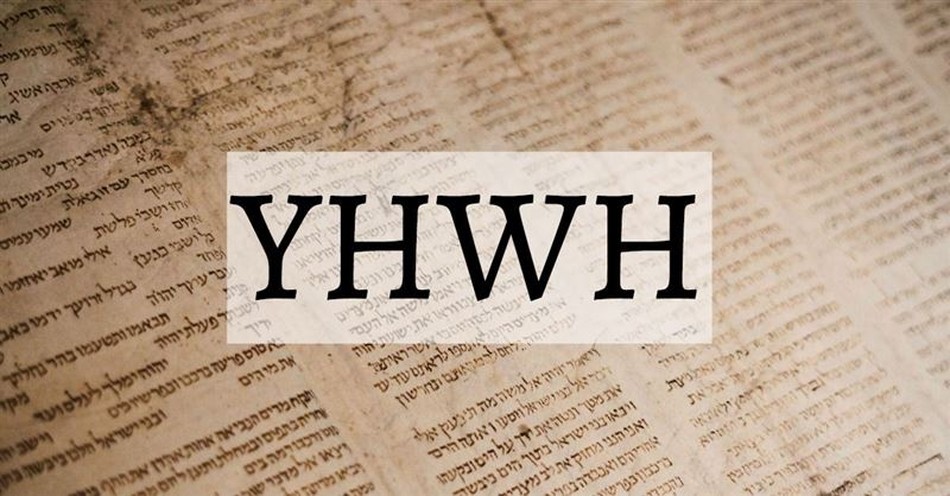Throughout history, the Bible has been translated into dozens of languages. As a result, God has acquired a number of names: Dios, Apajui, God, Enkai, Dieu, Gott, and so on. However, the Torah, written in Hebrew, did have a specific name for God. This name, YHWH, is known as the Tetragrammaton (which means "four letters").
YHWH: Table of Contents
- YHWH in the Bible
- Meaning in Hebrew
- Tetragrammaton Meaning
- Pronunciation
- History
- Translations
- Bible Verses
Tetragrammaton of YHWH in the Torah and the Bible
Though it is uncertain whether this name of God was used previously, most scholars point to YHWH first appearing in the Bible when God manifests Himself to Moses in the burning bush (Exodus 3).
In Exodus 3:14, “God said to Moses, ‘I AM WHO I AM. This is what you are to say to the Israelites: “I AM has sent me to you.”’”
This I AM is understood to be YHWH and could alternatively be translated as something along the lines of “He Who Is” or “He who brings being into being.”
“YHWH” is formed from the four Hebrew letters yodh/yud, he/hey, waw/vav, and he/hey. It is called the Tetragrammaton, literally meaning “four letters,” because of this.
YHWH Meaning in Hebrew
Prior to Exodus 3, the Israelites called their god Elohim or El – is a title, not a personal name – or “El Shaddai,” often translated as God Almighty. When God gives a name for His people to call Him, it conveys His authority and eternal nature: I AM. He is the self-sufficient, self-sustaining God who was, who is, and who will be.
This eternal nature is conveyed better in Hebrew than in English. The first time God says I AM (“I AM WHO I AM”), the Hebrew says, “Ehyeh asher Ehyeh,” which translates as “I will be what I will be.” When God then tells Moses, “Say this to the people of Israel: I AM has sent you” (Exodus 3:14), it is “Yahweh.” Yahweh is the third-person version of Ehyeh, which is first-person. Yahweh could also be translated as He will be.
YHWH Tetragrammaton Meaning
YHWH can be interpreted in multiple ways, from “He who will be, is, and has been” to “He Who Is” to “He Brings into Existence Whatever Exists” to simply “I Am.”
It is perhaps this multiplicity yet cohesion of meanings that most powerfully points to who God is. God is the unchanging, everlasting, all-powerful, undefinable Creator of all. We have so many names for Him, from the Almighty to Father, to the Lord of Hosts, but none can truly sum Him up. Thus, when asked to name Himself, God simply replies, “YHWH”—“I Am.”
Pronunciation of YHWH
In written form, ancient Hebrew was a consonant-only language without any vowels, thus leading to the name of God being spelled “YHWH.” Because of this, the word itself gives no indication of actual pronunciation.
This issue is compounded because of a Jewish taboo on speaking God’s name. Instead, the name HaShem (literally, “the Name”), would be used, or names such as Adonai (Lord) or Elohim (supreme one). The origin of the taboo is uncertain, perhaps stemming from fear of taking His name in vain, but as a result, the pronunciation was lost, and neither Jewish nor Christian scholars are sure how it was pronounced or even how many syllables it had.
The most likely pronunciation is Yahweh, pronounced “YAH-way” or “YAH-weh.”
History of Tetragrammaton Usage
Though the pronunciation of YHWH would have originally been known, after the Babylonian Exile in the 6th century B.C., the Jews began to use the name Elohim more than YHWH. This is potentially for two reasons, one being that Elohim was a more universal name as Judaism spread and the other being that the divine name was increasingly considered too sacred to be uttered. It was replaced vocally in synagogues as Adonai.
In the 6th through 10th centuries, the Masoretes, who worked to reproduce the original Hebrew text of the Bible, inserted the vowels from Adonai or Elohim into YHWH to get YeHoWeh or YeHoWaH. However, “Y” doesn’t exist in Latin, so Latin-speaking Christian scholars replaced the “Y” with “I” or “J” to get “JeHoWaH,” which became “Jehovah” as it spread throughout medieval Europe.
Christian scholars continued to refer to the Tetragrammaton as Jehovah until 19th and 20th-century scholars returned to “Yahweh,” a form that dated back to early Christian writers such as the 2nd-century Clement of Alexandria.
YHWH Translations in English
In English translations of the Bible, the Tetragrammaton is usually rendered LORD, with the word “Lord” in small capital letters, though it is sometimes rendered “Yahweh” or “Jehovah,” leading some to believe that Jehovah is the Divine Name revealed to the Israelites and thus is the correct or true name of God. This is not the case, as has been shown, as Jehovah evolved from a continued mixing of words, alphabets, and languages, not emerging until around the 16th century.
YHWH in the Bible
"And God said unto Moses, I AM WHO I AM: and he said, Thus shalt thou say unto the children of Israel, I AM hath sent me unto you." - Exodus 3:14
"I am Alpha and Omega, the beginning and the ending, saith the Lord, which is, and which was, and which is to come, the Almighty." - Revelation 1:8
"Hear, O Israel: The LORD our God is one LORD" - Deuteronomy 6:4
"Who hath wrought and done it, calling the generations from the beginning? I the LORD, the first, and with the last; I am he." - Isaiah 41:4
"Sing unto God, sing praises to his name: extol him that rideth upon the heavens by his name JAH, and rejoice before him." - Psalm 68:4
"And I appeared unto Abraham, unto Isaac, and unto Jacob, by the name of God Almighty, but by my name JEHOVAH was I not known to them." - Exodus 6:3
"Thus saith the LORD the King of Israel, and his redeemer the LORD of hosts; I am the first, and I am the last; and beside me there is no God." - Isaiah 44:6
Alyssa Roat is a literary agent at C.Y.L.E., a professional writing major at Taylor University, and a freelance editor with Sherpa Editing Services. Her passions for Biblical study and creativity collide in her writing. More than a hundred of her works have been featured in publications ranging from The Christian Communicator to Keys for Kids. Find out more about her here and on social media @alyssawrote.
Photo Credit: Unsplash/Tanner Mardis
Design Credit: Emily Hall



